第36章 ENGLAND UNDER HENRY THE SECOND-PART THE FIRST(4)
When intelligence of this new affront was carried to the King in his chamber,his passion was so furious that he tore his clothes,and rolled like a madman on his bed of straw and rushes.But he was soon up and doing.He ordered all the ports and coasts of England to be narrowly watched,that no letters of Interdict might be brought into the kingdom;and sent messengers and bribes to the Pope's palace at Rome.Meanwhile,Thomas a Becket,for his part,was not idle at Rome,but constantly employed his utmost arts in his own behalf.Thus the contest stood,until there was peace between France and England (which had been for some time at war),and until the two children of the two Kings were married in celebration of it.Then,the French King brought about a meeting between Henry and his old favourite,so long his enemy.
Even then,though Thomas a Becket knelt before the King,he was obstinate and immovable as to those words about his order.King Louis of France was weak enough in his veneration for Thomas a Becket and such men,but this was a little too much for him.He said that a Becket 'wanted to be greater than the saints and better than St.Peter,'and rode away from him with the King of England.
His poor French Majesty asked a Becket's pardon for so doing,however,soon afterwards,and cut a very pitiful figure.
At last,and after a world of trouble,it came to this.There was another meeting on French ground between King Henry and Thomas a Becket,and it was agreed that Thomas a Becket should be Archbishop of Canterbury,according to the customs of former Archbishops,and that the King should put him in possession of the revenues of that post.And now,indeed,you might suppose the struggle at an end,and Thomas a Becket at rest.NO,not even yet.For Thomas a Becket hearing,by some means,that King Henry,when he was in dread of his kingdom being placed under an interdict,had had his eldest son Prince Henry secretly crowned,not only persuaded the Pope to suspend the Archbishop of York who had performed that ceremony,and to excommunicate the Bishops who had assisted at it,but sent a messenger of his own into England,in spite of all the King's precautions along the coast,who delivered the letters of excommunication into the Bishops'own hands.Thomas a Becket then came over to England himself,after an absence of seven years.He was privately warned that it was dangerous to come,and that an ireful knight,named RANULF DE BROC,had threatened that he should not live to eat a loaf of bread in England;but he came.
The common people received him well,and marched about with him in a soldierly way,armed with such rustic weapons as they could get.
He tried to see the young prince who had once been his pupil,but was prevented.He hoped for some little support among the nobles and priests,but found none.He made the most of the peasants who attended him,and feasted them,and went from Canterbury to Harrow-on-the-Hill,and from Harrow-on-the-Hill back to Canterbury,and on Christmas Day preached in the Cathedral there,and told the people in his sermon that he had come to die among them,and that it was likely he would be murdered.He had no fear,however-or,if he had any,he had much more obstinacy-for he,then and there,excommunicated three of his enemies,of whom Ranulf de Broc,the ireful knight,was one.
As men in general had no fancy for being cursed,in their sitting and walking,and gaping and sneezing,and all the rest of it,it was very natural in the persons so freely excommunicated to complain to the King.It was equally natural in the King,who had hoped that this troublesome opponent was at last quieted,to fall into a mighty rage when he heard of these new affronts;and,on the Archbishop of York telling him that he never could hope for rest while Thomas a Becket lived,to cry out hastily before his court,'Have I no one here who will deliver me from this man?'There were four knights present,who,hearing the King's words,looked at one another,and went out.
The names of these knights were REGINALD FITZURSE,WILLIAM TRACY,HUGH DE MORVILLE,and RICHARD BRITO;three of whom had been in the train of Thomas a Becket in the old days of his splendour.They rode away on horseback,in a very secret manner,and on the third day after Christmas Day arrived at Saltwood House,not far from Canterbury,which belonged to the family of Ranulf de Broc.They quietly collected some followers here,in case they should need any;and proceeding to Canterbury,suddenly appeared (the four knights and twelve men)before the Archbishop,in his own house,at two o'clock in the afternoon.They neither bowed nor spoke,but sat down on the floor in silence,staring at the Archbishop.
Thomas a Becket said,at length,'What do you want?'
'We want,'said Reginald Fitzurse,'the excommunication taken from the Bishops,and you to answer for your offences to the King.'
Thomas a Becket defiantly replied,that the power of the clergy was above the power of the King.That it was not for such men as they were,to threaten him.That if he were threatened by all the swords in England,he would never yield.
'Then we will do more than threaten!'said the knights.And they went out with the twelve men,and put on their armour,and drew their shining swords,and came back.
His servants,in the meantime,had shut up and barred the great gate of the palace.At first,the knights tried to shatter it with their battle-axes;but,being shown a window by which they could enter,they let the gate alone,and climbed in that way.While they were battering at the door,the attendants of Thomas a Becket had implored him to take refuge in the Cathedral;in which,as a sanctuary or sacred place,they thought the knights would dare to do no violent deed.He told them,again and again,that he would not stir.Hearing the distant voices of the monks singing the evening service,however,he said it was now his duty to attend,and therefore,and for no other reason,he would go.